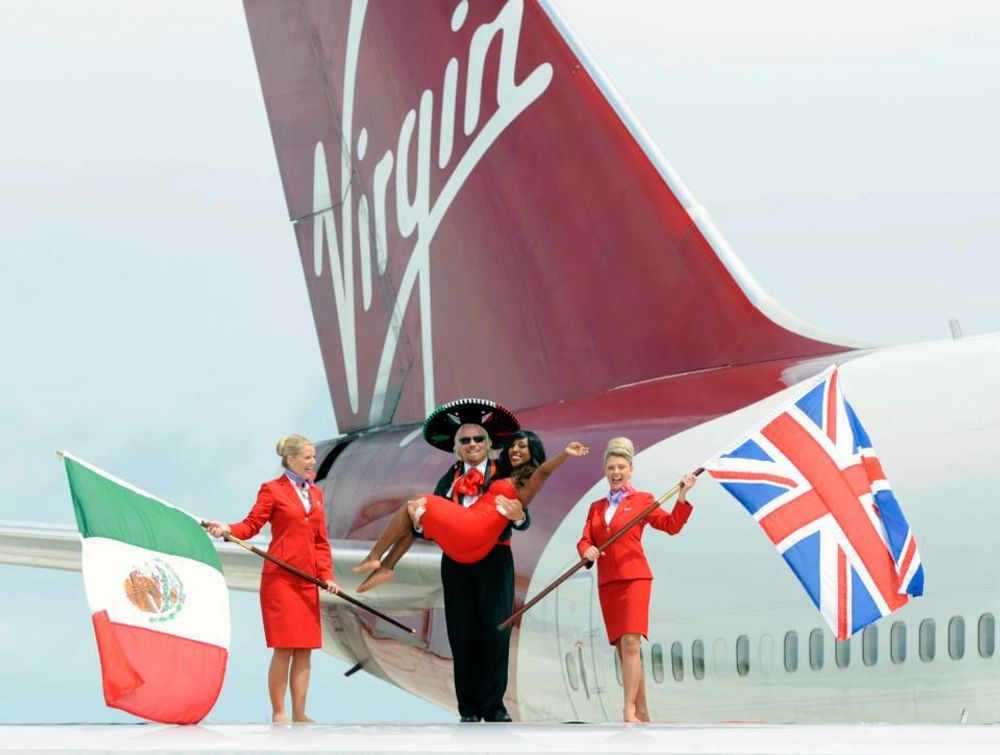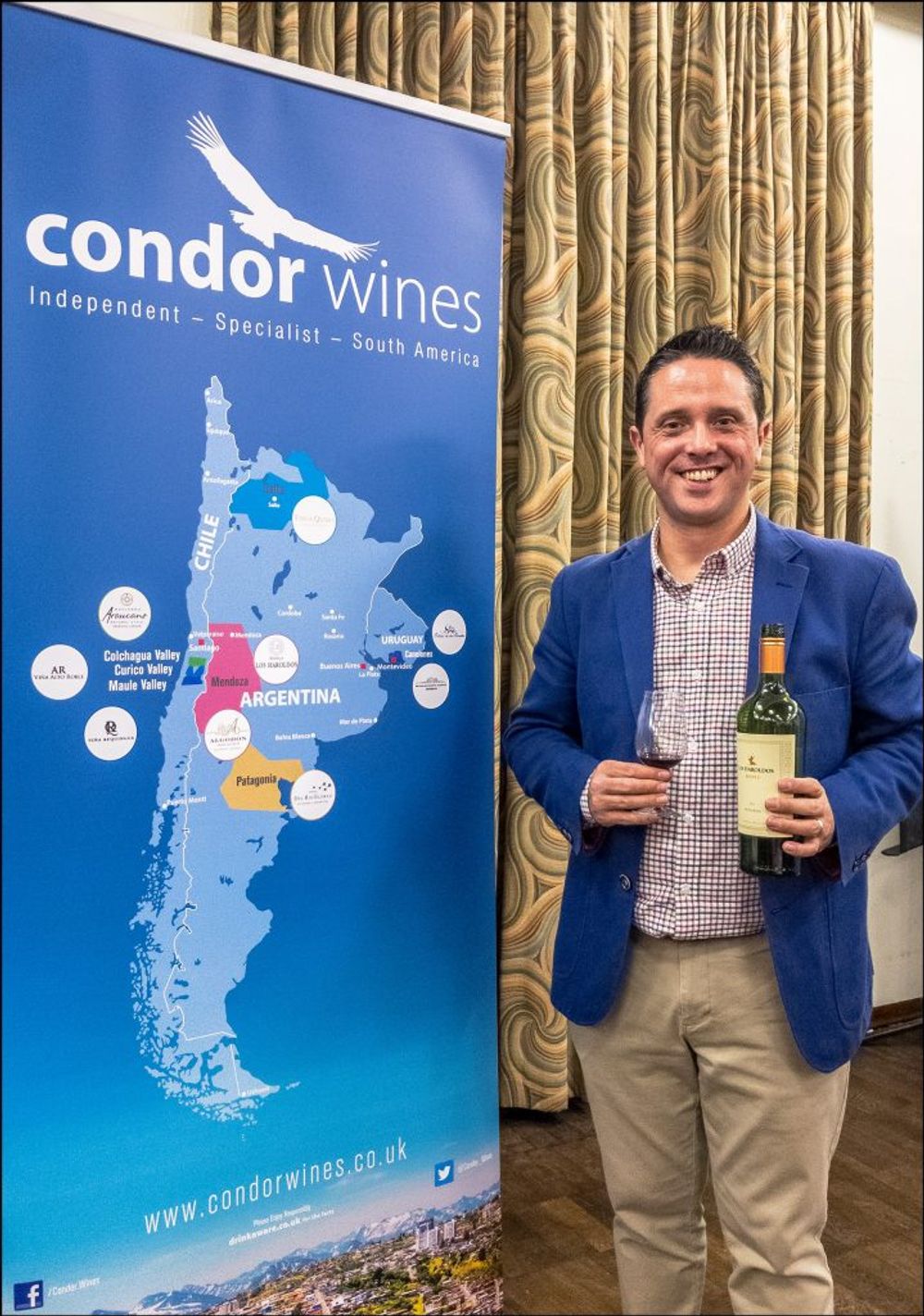Condor Wines, Red Squirrel Wine and the Antipodean Sommelier are just three of the new wave of smaller wine importers that are changing the face of wine buying in the premium on-trade and bringing niche, artisan wines to a wider audience.
Look closely enough and there are example after example across all industry sectors where the profile and perception of a company can often be greatly exaggerated compared to the actual size of that individual business.
You might give the impression of being big and well connected when in reality you can get everyone in your business in the back of a London taxi.

Nobody does publicity quite like Richard Branson but there is much that small importers can learn from his approach to gaining more headlines than you might deserve
Take Richard Branson and Virgin Atlantic. It had the chutzpah to immediately go toe to toe with British Airways, at least in terms of publicity and advertising, when in reality it only had three planes constantly flying back and forward to the US compared to the hundreds of planes in BA’s global fleet. Yet to the casual observer you would think Branson was one of the most influential aviation voices in the industry.
I can remember working for a trade travel magazine and coming across a tour operator chief who was constantly being quoted on all the front page stories across the business press. When I arranged to meet him I was somewhat taken aback to find him in an office the size of a spare bedroom with just him, a desk, a computer and a phone. He simply rang the trade magazines on their press day and offered a quote on whatever their lead story was. A soundbite that was often so good it became the main angle of the article rather than the original story.
Building a brand
It all comes down to how good you are at building a brand around your business. Yes, the day job might be importing wine from around the world, but you only have to look at the number of operators and tables in the Esoterica section of last month’s London Wine Fair to see how hard it is to stand out when you are effectively all doing the same thing.
How different small wine suppliers and distributors go about making a name for themselves was the subject of a fascinating debate at this year’s show. Organised by Lee Evans of Condor Wines it included a panel discussion with Nik Darlington of Red Squirrel and Tony Wellings of Tas Wines and the Antipodean Sommelier and chaired by The Buyer.
The premise of the debate was that being small was actually a benefit and a competitive advantage compared to the size and scale of the sector’s larger, national distributors. But is that really the case? Can David really win against Goliath when it comes to sourcing, buying and distributing wine from all over the world at price points that on-trade operators are looking for?
Finding your niche

Lee Evans has made South America the 100% focus for Condor Wines
For Evans it comes down to being seen as a specialist, which in his case has meant basing his entire business on importing wines from South America. That way, he argues, you are able to be far closer to the countries you are importing wine from, and can be quicker to pick up on new trends, styles of wine and producers looking to work in the UK.
It is a similar story for Wellings and his Antipodean Sommelier business which has established himself as one of the country’s few specialists in New Zealand wine, a position that has enabled him to not only gain good traction right across the UK, but has also opened him up to export, particularly across the Nordic markets.
He literally, he said, stated with one wine, one brand and started slowly to build a network through regional wholesalers. “You have to be exclusive. We don’t import anything you can get somewhere else.”
Nik Darlington admitted his previous experience both as a management consultant and as a BBC political journalist helped him in initially building his profile and creating a much bigger noise around Red Squirrel Wines than the scale of the business arguably warranted at the time. But putting yourself forward for industry debates such as this from the outset meant Red Squirrel has been talked and written about ever since he first appeared at LWF only as far back as 2014.
All about value not price
But profile and perception is one thing, ultimately it comes down to literally delivering on your promises, said Wellings. “Our competitive edge is delivering value. Not just about price, but value across everything we do,” he explained.
Darlington is quite clear that Red Squirrel does not “compete on price”. “We are not working at the volume end of the market. We are working with producers that are producing anything from 5,000 to 50,000 cases a year. Competing on price is not the way to go,” he added.
The key, he believes, is to work directly with all the producers you import. So that you have a personal relationship with each one and that they can buy in to what you are doing as much as you are supporting their wines.
Evans agreed. “We import 100% of what we do. It’s hard work, but you have to do it. You have to go and meet the producers.”
Wellings believes the collapse of WaverleyTBS in 2012 was the catalyst for so many smaller wine importers staring up. Overnight there were thousands of pubs across the country without a wine supplier. Yes, the bulk of which were quickly swallowed up by the likes of Matthew Clark, but it left the door open for other more fleet of foot players to grab a little bit more of the distribution pie.
Moving forward

Darlington believes an important step forward for small importers is to find more ways they can work closer together on mutually beneficial projects
Once you reach a certain scale and are importing a number of producers from certain countries then it makes sense to start to look at how you can collaborate with other smaller importers doing the same. You can make big savings, stressed Darlington, by sharing shipping costs on bringing in a pallet of wine made up of different importers producers.
He is less keen about joining a buying group. Primarily because the main focus of a buying group is to buy and import based on price. A centrally agreed price point which once set is very hard to move away from.
But running joint tastings is very much the way forward for small importers. Red Squirrel has had some great success being part of joint events with like minded importers as not only does it help create a noise and a buzz around the event, it means you can collectively showcase what you are doing, but do so in a less risky environment where you are all sharing the costs of putting the event on. “You can also grow together as a result,” said Darlington.
Wellings takes a slightly different approach and has had great success by exhibiting at the Foodies events that take place across the country and the BBC Good Food Show. Effectively fishing where the fish are.
Step by step
Building up a small wine importer business is a slow and steady process. You have to do it step by step, said Darlington. Particularly as it can mean selling 700,000 cases of wine just to be able to afford to take on an extra sales person.
Wellings agreed: “Do things in stages. But you have to be focused about what you are doing, specialise in it, and then make sure you get it right before moving on to the next step.”
You also have to be humble and accept the fact you are going to make mistakes, stressed Darlington. “Before starting my business I had read a lot about the wine industry, but I did not know it.”
For Evans it is about always being willing to listen and learn. There is a great deal, he stressed, to be learnt from your own producers and how they see the rest of the world and what is selling in other key countries. That can give you confidence, he added, to take on new wines.
The key, he argued, is to be always ready to change, be flexible and adapt to market conditions. Particularly in terms of currency and where you are buying and sourcing your wines from. “You have to be able to adapt,” he said. “It can get away from you very quickly if you are not careful about where you are exposed.”
Wellings said that ironically you can actually oversell too quickly and find yourself with bond payments to be made when you have not been paid by your customers. So take care with cash flow and managing your own supply chain.
Keep focused
Noticeably all three importers did not see themselves as competing directly with the big national distributors. They, in their view, are operating in another sphere of the market. Yes, some if not most of their customers will be working with some of the bigger chains, but the reason they want to work with a smaller importer is just basically different, stressed Wellings.
It is the fact that smaller players can be so reactive and flexible and go as far as allowing you to take just one case of wine rather than a full order is what makes them special and different, added Evans.
Darlington admitted there was no way a smaller player can ever compete with the big boys when it comes to the added value elements of training, support and the incentives they can offer. But smaller players can take buyers on trips and build personal relationships with key customers in a way that the bigger players simply can’t do. It is you after all the owner, founder of the business that has that relationship with a customer, not a regional sales manager.
But for him the most important factor in building success as a small wine importer is not just the wines you have on your list, but how you behave as a business and as individuals.
“Be nice to people. That’s the most important thing. You are building up your business, and people will relate to that, have an affinity with you,” said Darlington.
For Evans it is that “empathy” that smaller importers have with so many of their on-trade and independent customers that can really make a difference. “We are all really doing the same thing.”






























